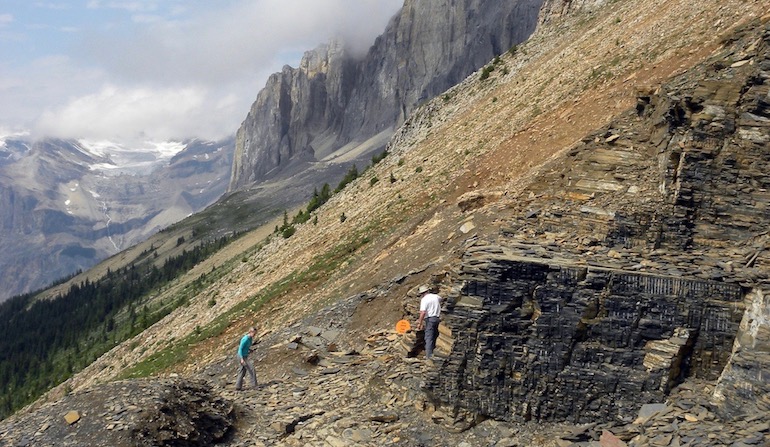 Intelligent Design
Intelligent Design
Meyer, Medved on Great Minds — Cambrian Explosion, Burgess Shale, and More

On the latest episode of Great Minds with Michael Medved, Michael talks with Steve Meyer about the origin of animal life. There’s a reason we’re delighted with these interviews: There is no substitute for conversation about ideas. Devoted as you or I may be to writing and reading, intelligent conversation has the greater power to elicit new ideas, formulations, and stories that illuminate them.
Like what? Meyer and Medved discuss the Cambrian explosion and Steve’s visit to the Burgess Shale site in British Columbia. The official guide for the seven-mile hike up the mountain lectured Steve’s group about the wonders of evolutionary thinking and how “Darwin would feel vindicated by these fossils.” Eventually it got to be too much for one teenage boy in the group. The kid burst out with his unfiltered response that, of course, the Cambrian fossils represent the exact opposite of what Darwin expected: not a gradual emergence of complex life from simpler forms, but two-thirds of animal body plans suddenly erupting into existence. BANG!
The guide then got into a two-and-a-half hour conversation with Steve and the teenager on the hike down. At the end, he (the guide) admitted that he had never thought of these things quite this way and it gave him hope. Why? Maybe there’s hope after all, he said, beyond the bleak nihilism that goes with a strictly materialist view.
Quite a story. Michael asks Steve about extinct creatures and what that says about a designer who creates animals only to let them die out. But Steve explains that humans do this all the time with technological products. Few styles of automobiles, as one example, remain unchanged from decade to decade. In fact, I can’t think of any that does. An eagerness to see change seems built into us as creators, and in this regard, we’re made in the image of whatever intelligent agent designed us.
Animal forms come and go, but what links them as “acts of mind” (as Agassiz put it) is a “continuity of ideas,” not, says Meyer, the physical continuity that Darwin asserted. These are wonderful ways of putting things.
Steve also discusses the 2016 Royal Society meeting attended by a “spirited minority” of ID proponents, where one evolutionist put it that “criticism of neo-Darwinism is so early ’90s.” He meant that among scientists behind closed doors, neo-Darwinism is so passé that criticizing it further seems beside the point.
Interesting. Michael Medved is a great interviewer, and Steve an always charming and stimulating interview subject. Listen to the conversation now at the Great Minds with Michael Medved site. We’ll be posting the video there shortly.
